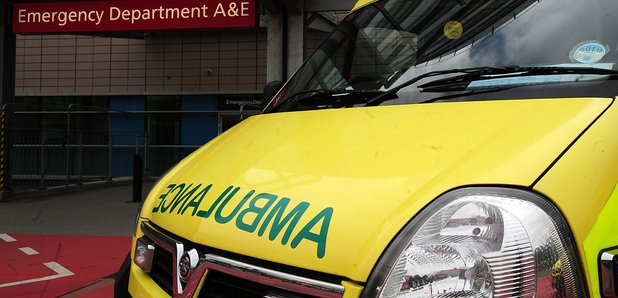
Richard Spurr 1am - 4am
7 April 2017, 07:11 | Updated: 7 April 2017, 07:22

LBC has learnt that thousands of people calling for an ambulance in London are instead being taken to hospital in taxis.
LBC has exclusively obtained figures from the London Ambulance Service which show a 600% rise in these taxi journeys instead of ambulances over just three years - and last year, it cost £350million.
Rachael Venables reports: "Millions of people call 999 or 111 for an ambulance here in London every year. But last year thousands of people who wanted a paramedic instead got a taxi driver."
Keith, a former cabbie who used to take people to hospital, told LBC: "You would sometimes get little notes saying 'Patient is hearing-impaired or visually-disabled.
"A couple of times, I took women who had gone into labour, but weren't expected to go into delivery immediately. Those tend to happen late at night, where they didn't have an emergency ambulance immediately available."
Alan Lofthouse is a former paramedic. He told LBC the problem is all to do with a lack of staff, money and ambulances.
He said: "It's scary really, when you think about the services. In an ambulance, you'd have two people trained in basic life support, who would probably have oxygen and carry a defibrillator.
"And the people being moved in taxis, while they might not be 'emergency, critically ill', they might be people who have long-term health conditiions or disabillities.
But the London Ambulance Service insist they are doing this to be more efficient in life-saving, telling us: "This is not about us saving money, this is about us saving lives.
"Demand for our services go up year-on-year and demand is currently unprecedented. So by sending a taxi to a patient who needs to go to hospital, but doesn't need immediate medical treatment, we can make sure that ambulance crews are there to treat our sickest patients."
Rachael continues: "They also stress they never send a cab to someone in a life-threatening situation, and only do it in the first place to free up their staff.
"But the taxis being used to respond to emergency called, either in transporting a patient or their paramedic, has gone from 2,000 to 10,000 to 15,000 over the last three years alone.
"And that's believed to be down to a lack of available paramedics and cars - and a huge rise in emergency calls."